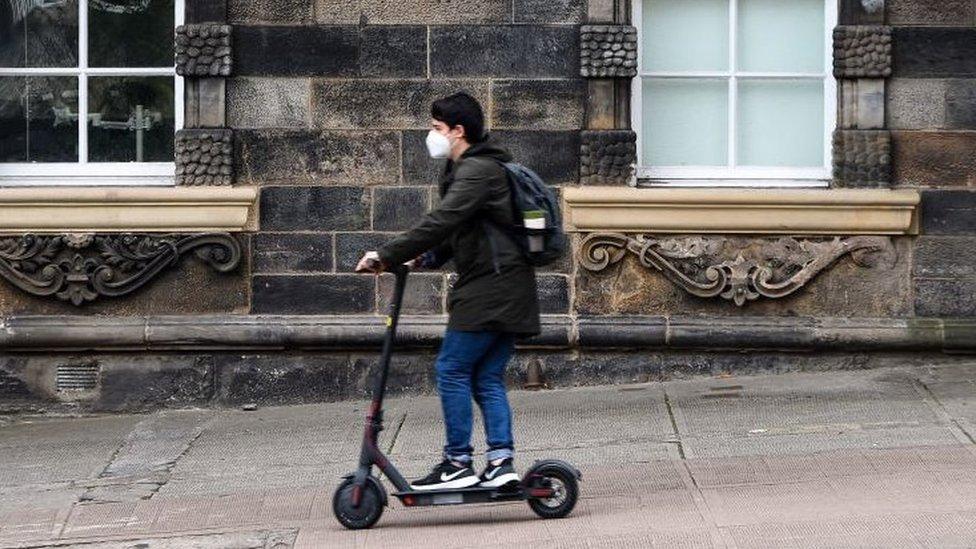E-scooters: Petition to PM calls for end of rental trials
- Published
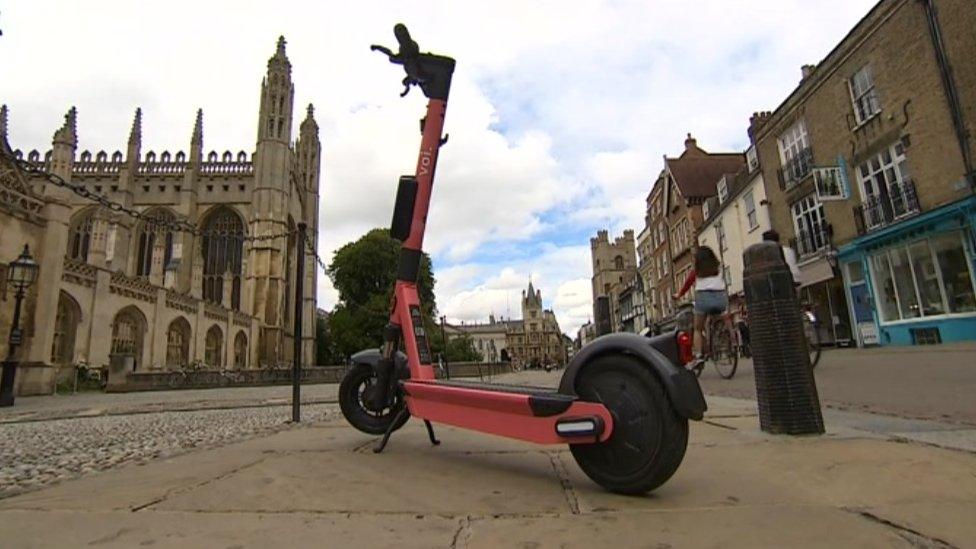
Trials of e-scooter rentals are under way in 32 places across England
A man whose brother died from a fall after trying to move a rental e-scooter is calling on the prime minister to stop the hire schemes.
Philip Jones, 75, fell in Northampton on 17 October and died in hospital 12 days later.
An inquest ruled the death accidental, but his brother Dennis Jones is asking for an inquiry.
The Department for Transport (DfT) said safety was a priority and it was working on further rules.
Mr Jones fell while trying to remove an e-scooter left in his path.
"If the e-scooter hadn't have been laying in the pavement in front of my brother's mobility scooter, this accident would have never have happened and he would still be alive today," said Dennis Jones.
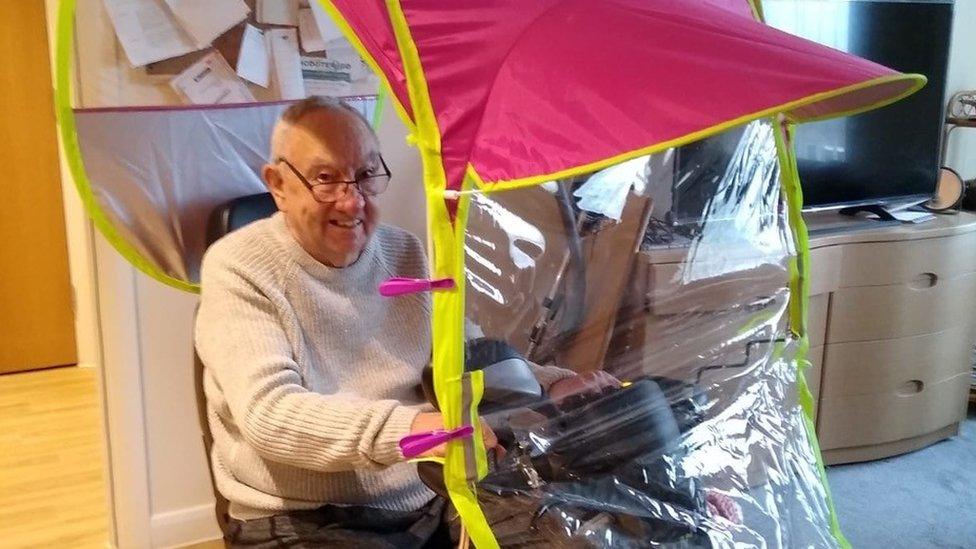
Philip Jones in his mobility scooter, which he left to move an e-scooter before falling
He said he saw rental e-scooters "abandoned all over Northampton".
"The lessons aren't being learned - it's just not working," he said.
Mr Jones will hand a letter to 10 Downing Street, calling for the trial of rental e-scooters to be stopped and an inquiry into his brother's death.
It also asks for a ban on the sale of private e-scooters and the current law, banning their use anywhere other than on private land, to remain.
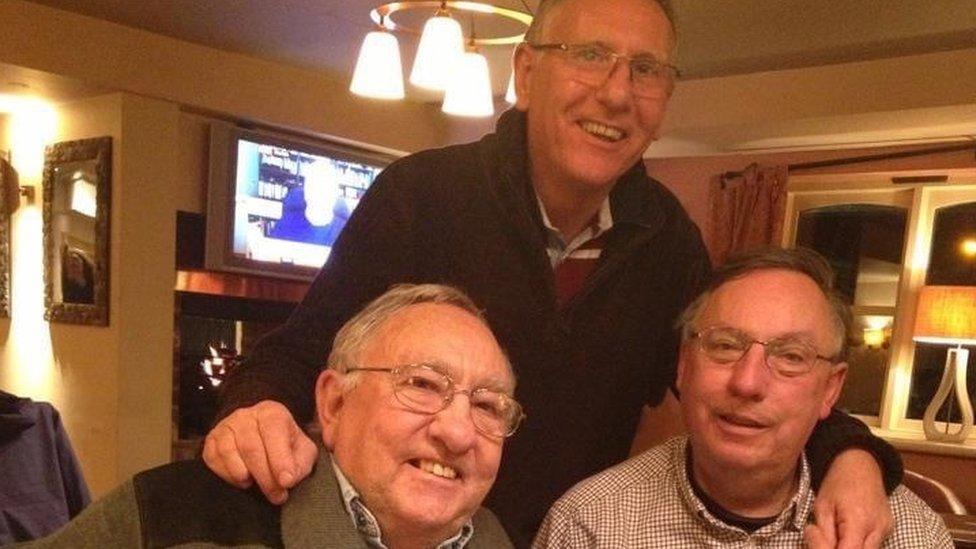
Philip Jones (left) and his brothers Ray (centre) and Dennis (right), who is calling for the e-scooter rental trial to be stopped

E-scooters and the law
E-scooters are treated as motor vehicles, external by the DfT and subject to the same legal requirements as other vehicles.
It is illegal to use privately-owned e-scooters on a public road, cycle lane or pavement in the UK.
But in 32 trial areas in England - including Northampton, Birmingham and Cambridge - the vehicles can be rented, external.
These can be ridden with a full or provisional driving licence at up to 15.5mph (25km/h) on roads (except motorways) and in cycle lanes.

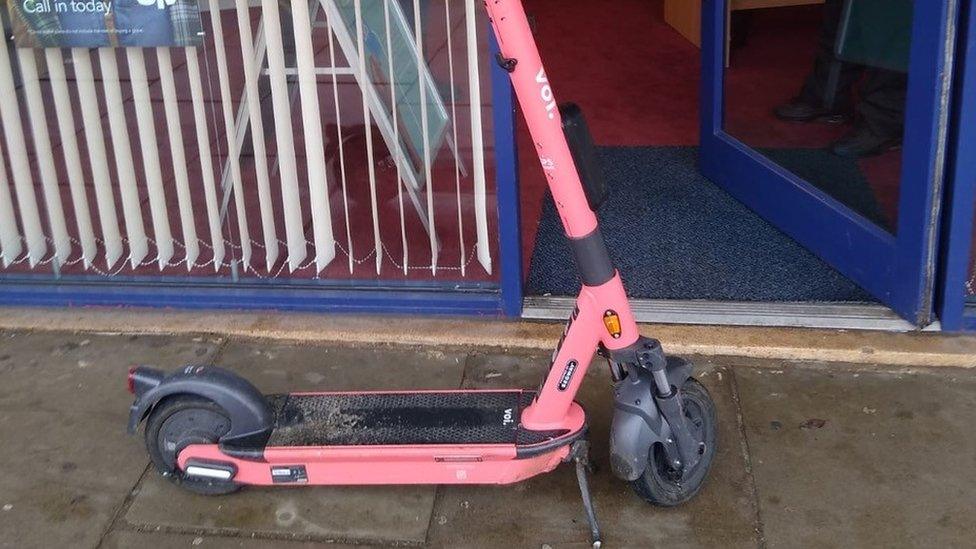
Dennis Jones said an e-scooter was even left in the middle of the pavement when he went to arrange his brother's funeral
The petition has been organised by National Federation of the Blind of the UK, external, which described the e-scooter trials as "shambolic".
It said they had been rolled out with "complete disregard for the safety of pedestrians and vulnerable pedestrians".
A spokesperson for Voi, which runs the Northamptonshire scheme, said most riders were responsible and most journeys incident-free.
"Any death on the roads is tragic but just like cyclists and pedestrians, e-scooter riders are also vulnerable road users," they said.
"Dedicated riding space, as well as parking infrastructure, will help create an even safer system for bike and e-scooter riders, reversing car dependency and making cities safer, healthier and more sustainable for all."
The spokesperson said the company was working with the Royal National Institute of Blind People (RNIB) and other disability organisations "to understand the needs of vulnerable people".
In a statement, the DfT said: "Safety will always be our top priority and the trials currently taking place in 32 regions across England help us to better understand the benefits of e-scooters and their impact on public space.
"We continue to engage with vulnerable road user groups to help shape the rules, on top of existing safety features - such as compulsory horns and bells - and ensuring trial areas have sufficient parking to avoid street clutter."

Find BBC News: East of England on Facebook, external, Instagram, external and Twitter, external. If you have a story suggestion email eastofenglandnews@bbc.co.uk, external
Related topics
- Published25 June 2021
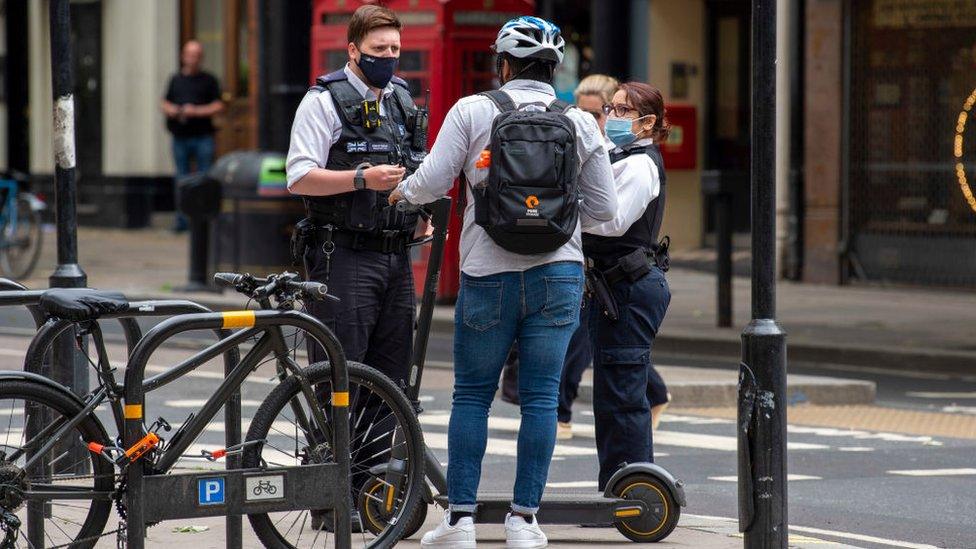
- Published9 June 2021
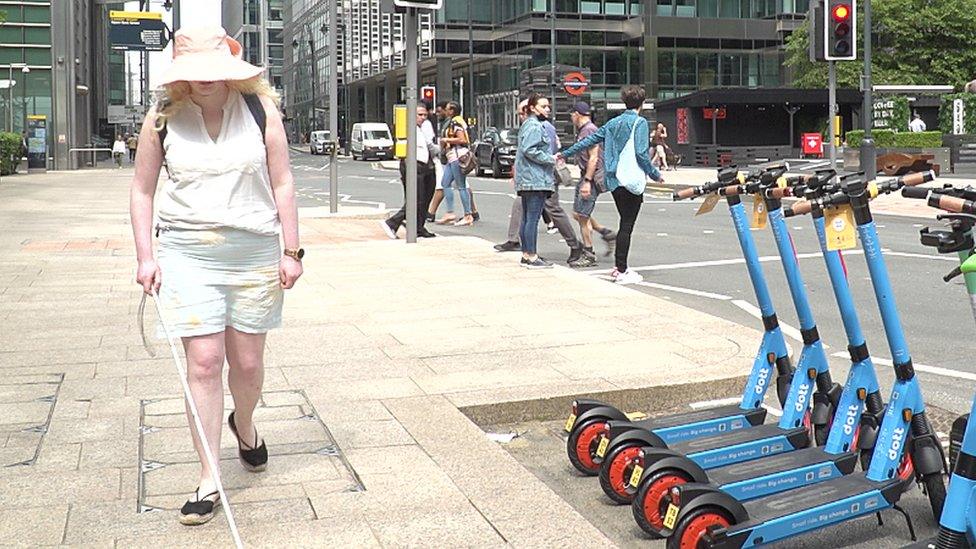
- Published1 June 2021
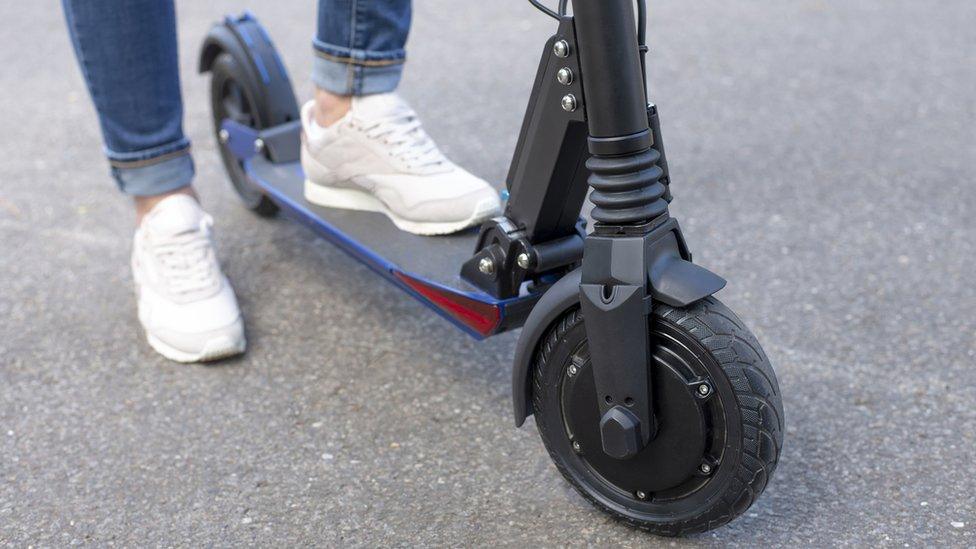
- Published2 October 2020
